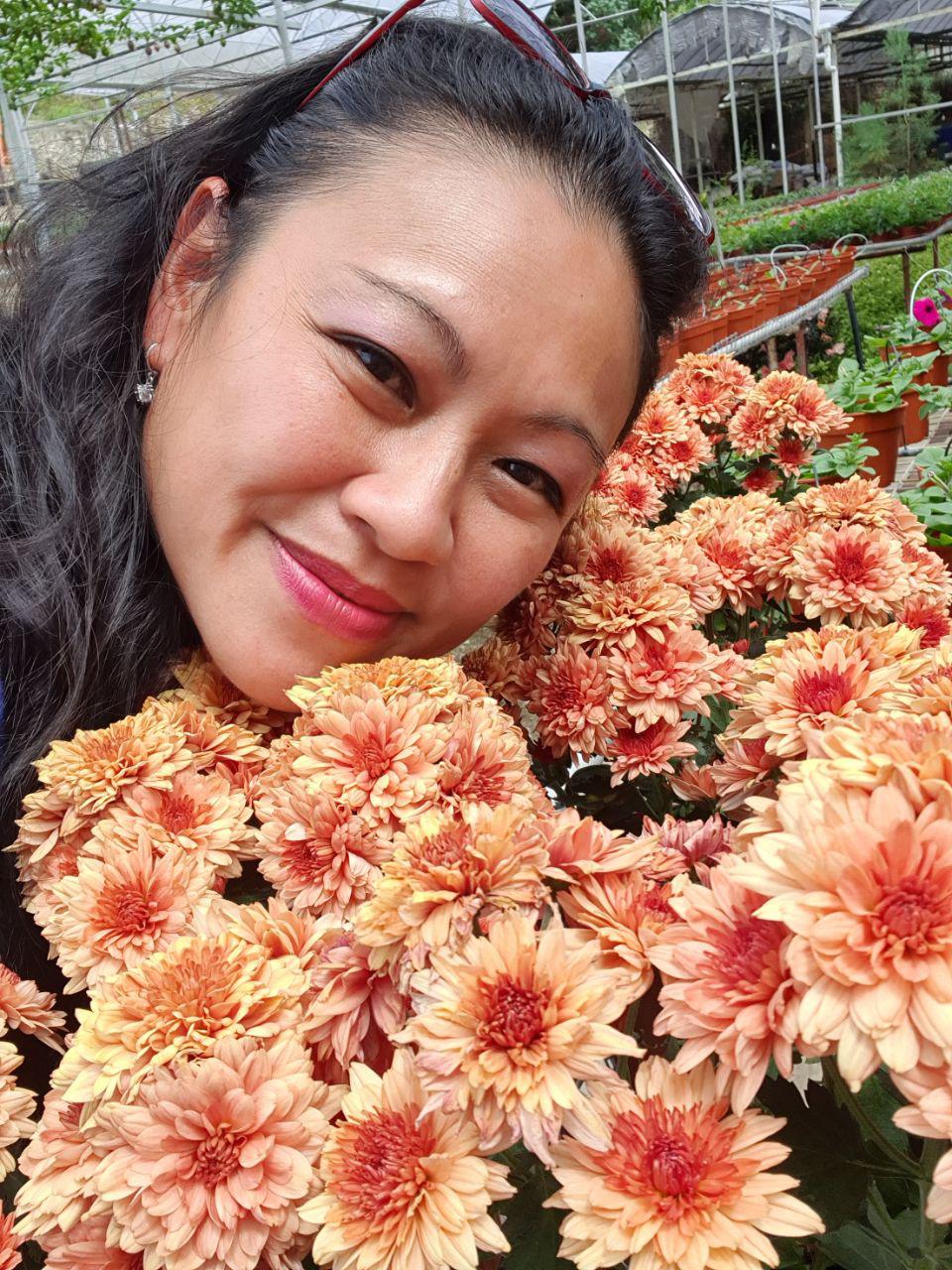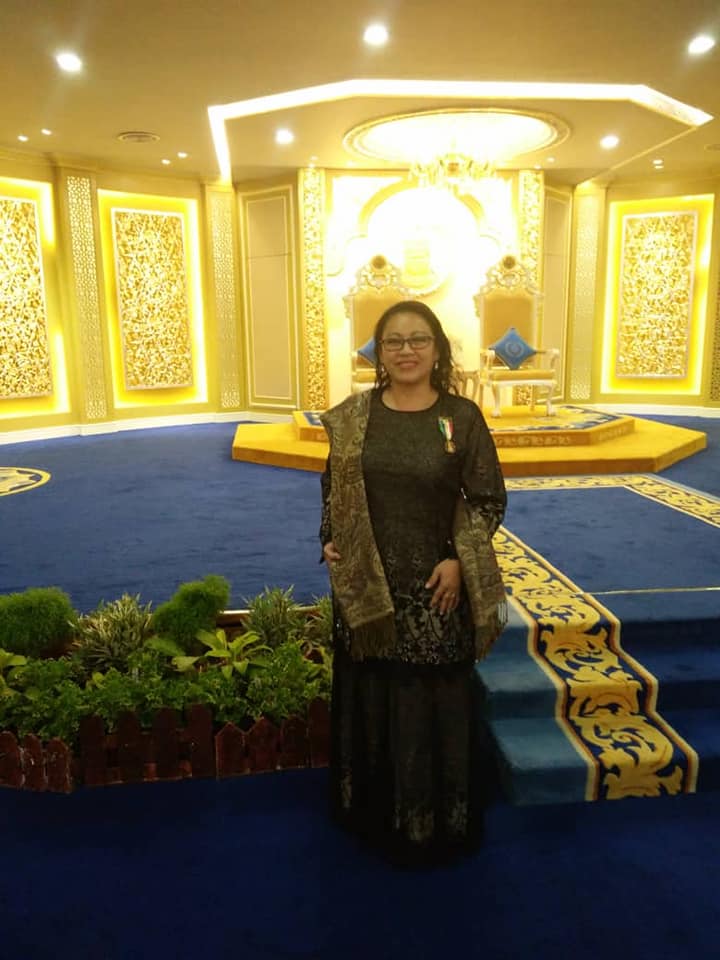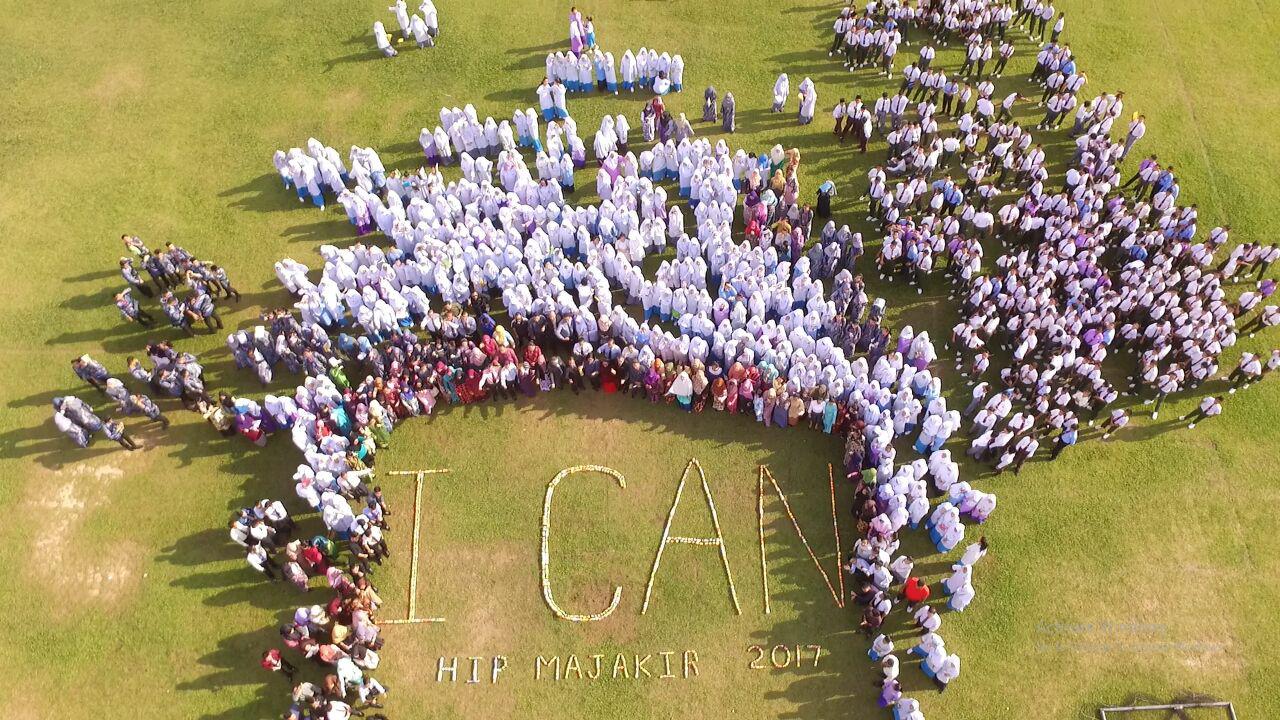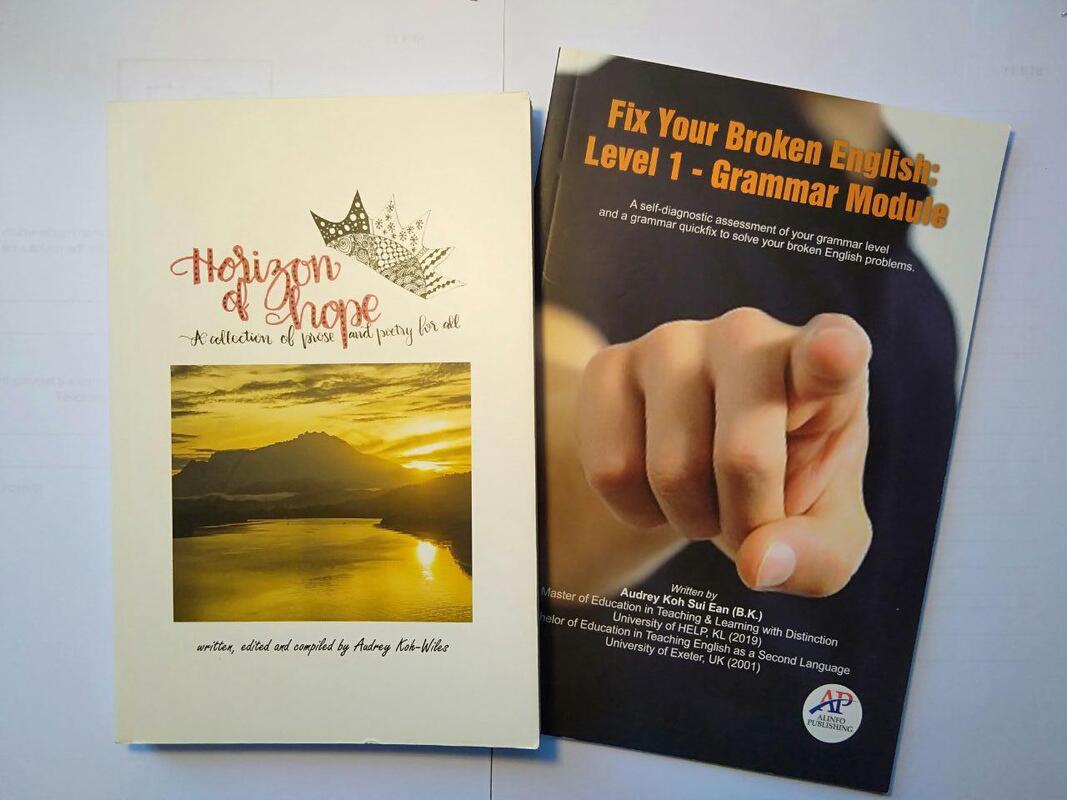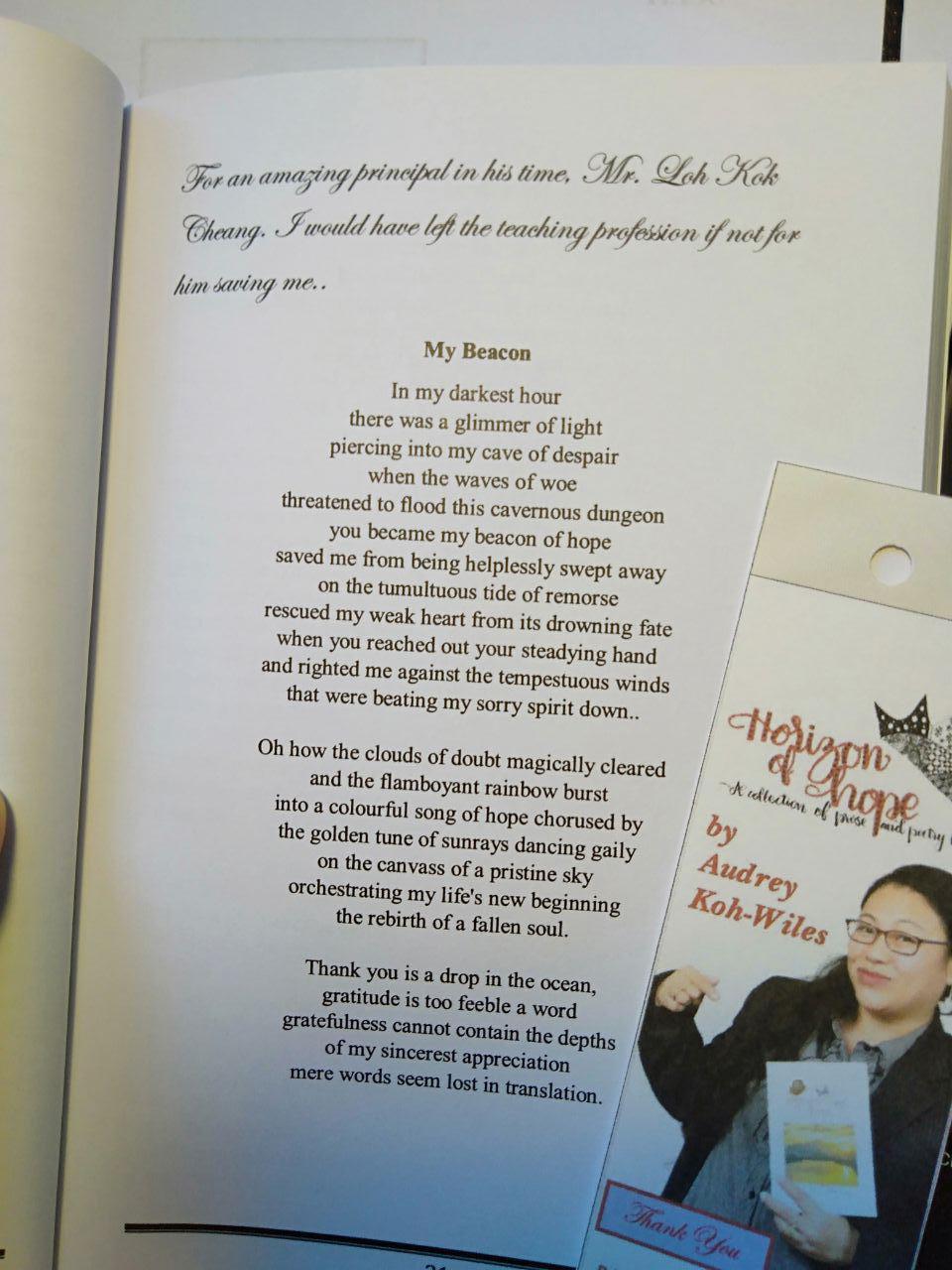|
by Abdul Aziz bin Arsyad Summary The Blog editorial team has recently launched a new series known as Interviews with Going Digital ELT (GD-ELT Inspirers). This series will be featuring outstanding English Language educators who have made significant contributions in the field of digital technology in language education in Malaysia. These educators have gone above and beyond their calls of duty to provide meaningful learning experiences for their students. They have also helped and inspired fellow teachers from all over Malaysia and around the world with their determination, selflessness, ingenuity, and generosity in sharing their knowledge with others. The GD-ELT Inspirer featured in this issue is the amazing Audrey Koh Sui Ean, who is well-known not only in the field of ELT but also through her involvement in charities and various humanitarian causes. In this interview with our team member Abdul Aziz Arsyad, Audrey talked about how she has turned stumbling blocks into stepping stones, and offered tips and advice on how other teachers can do the same. Overview Audrey Koh Sui Ean is not an unfamiliar name in Malaysian education scene, particularly amongst ELT practitioners. This holder of Bachelor of Education in TESL from the University of Exeter, United Kingdom and Master of Education in Teaching and Learning (Distinction) from University of HELP, Kuala Lumpur is a prolific ESL teacher, teacher trainer, published author, blogger, YouTuber - the list goes on. She is probably most well-known through her blog, MuetMyWay, which boasts over 7 million readers to date. In 2009, Audrey represented Malaysia in The Amazing Minds Longman English Teachers' Conference in Cambridge, United Kingdom. She was also selected as the Malaysia representative for the Study of the United States Institute (SUSI) in 2014 where she participated in a 6-week study tour of America, sponsored by the Malaysian American Embassy. Audrey describes herself as "a woman of countless hats," which is so apt given her involvements in so many different fields. In addition to being an amazing educator, this Perak-born lady is also an active social worker and humanitarian. Due to her altruism and contributions in countless charities and welfare projects, Audrey was awarded the Anugerah Sukarelawan Kebajikan Muda Perempuan by Sabah Council of Social Services in 2017 and Bintang Kinabalu by the Yang di-Pertua Negeri Sabah in 2018. A Chat with Audrey Koh Aziz: First of all, thank you so much for allowing me to interview you as one of our GD-ELT Inspirers. You certainly need no introduction, but would you mind telling us a little bit about yourself? Audrey: My name is Audrey Koh Sui Ean. I’m actually a Perakian, but I have lived in Sabah since I was four. I was in the science stream of SM All Saints when I realised that I had zero talent in Physics. So I took the brave step to drop this subject and to replace it with Literature in English. It was the best decision I ever made because with top scores for this and core subjects in SPM, I won a scholarship to do a TESL twinning degree with Maktab Perguruan Ilmu Khas in Kuala Lumpur and University of Exeter, United Kingdom. I graduated with honours in 2001 and returned to Sabah to serve our people. I finally found the motivation to do my Master of Education in Teaching and Learning with Distinction at HELP University, Kuala Lumpur in 2018. It was very useful to help me brush up on the latest effective teaching methodology. I have been teaching for 19 years now. I'm fast approaching the end of my second decade, having spent the last 12 years here in SMK Majakir, Papar. The years have only made me a wiser teacher compared to the doe-eyed gung-ho anything-goes teacher I was when I started out all starry-eyed. The blind optimism has been tempered with the limits of reality but I always endeavour to push the boundaries, especially now in this digital era. Aziz: You are known by teachers and students through your blog – MuetMyWay – which has over 7 million visitors to date! Can you tell us a little bit about how it all started? What motivated you to create this blog? Audrey: 2008 was the worst year of my life. I had a tyrannical over-zealous principal who saw it fit to demote me from Head of Department to Head of Panel, and later demoted me to be a lower form English teacher even though I was a Master Trainer for MUET. I lodged a complaint with the then Sabah Director of Education and was transferred out eventually, but my experience of being kicked from one school to another, banned from teaching English (I taught Home Economics/ERT for months!) was enough to cause me to cry a river. I was at my breaking point when I got another transfer letter to Beaufort even though I had personally gone and gotten a letter of recommendation from a principal of a school in Papar. When I finally admitted defeat, and had almost decided to leave the profession, a knight in shining armour saved me. Mr. Loh Kok Cheang, the then principal of Majakir, gave me my rightful position back as a MUET teacher and reinstated my dignity in myself as an educator. Henceforth, I vowed to pay it forward. I began writing more materials for seminars and workshops for Majakir students, started a blog to guide students, and then expanded it to include students of other schools and teachers all over Malaysia as blogs transcend boundaries. The start of 2008 was horrific, I literally burnt up in flames and watched my spirit die. But towards the end of 2008, because of people who believed in me and gave me a second chance, like a Phoenix, I underwent a rebirth and came our stronger having risen from ashes. These days, my objective is always to pay it forward. If I can help even one student or one teacher, all the naysayers in the world cannot stop me. Aziz: Thank you so much for sharing your story with us, Audrey. I bet most people who have benefitted from your blog have no idea about the pain that has spurred its inception. In addition to your blog, the resources that you have shared so generously as well as the teaching activities that you post regularly on your Facebook page seem to project an image of you as a tech-savvy person. Would you agree with this observation? Audrey: Being tech-savvy is by no means an easy feat. I’m from a generation that evolved from monochrome computers - from the era of Celeron to Pentium to God-knows-what these days. There is an old saying: if you stop, you are not only not moving forward, but you are actually going backwards as others surge ahead. All that I know about technology has been trial and error. Every time I stumble, I try to reach out and learn from others or just learn from YouTube. Blogging was getting to be popular in 2008. I had kept a personal blog to record my children’s births since 2005, so it was easy to transfer this skill to my teaching life by starting MuetMyWay. The blog title actually came to me in a dream, but I think it was just my subconscious working on overdrive as I slept yet was busy mapping out my strategy to help MUET students and teachers everywhere. I did become more polished when doing my Masters as I had a great lecturer who introduced me to various software and apps that could make my tech-infused teaching better. I'm thankful to Mr. Gerard Boey who taught me Technology in Education because this slot updated me on the various aspects of technology that I can incorporate in my teaching repertoire. As for the term tech-savvy, I do not claim to know everything. In fact, I blatantly admit there is a lot left to learn. The biggest difference between me and other educators is that I am willing to empower my students. Often teachers hold back, especially when they do not themselves know how to do it - be it how to make the app work or how to go about figuring out the technicalities. As for me, I prefer to empower my students. I would admit to them that I don’t know how to do it, but I am sure that they will be able to learn and to find a way. 99.9% of the time, the students do not let me down. To provide an example, for our Popcorn Morn - which is a day to showcase all the videos while eating junk-food together - the students did independent research on Filmora, OneShot, MovAvi and other video-editing apps and software so they could come up with brilliant videos. So basically, change your mindset, think of yourself not as a teacher but as a gardener. Plant seeds of knowledge and seeds of hope, teach them the skills they need, show them how to grow roots to find their own water and turn their face towards the sun to soak up its rays. If you remember nothing else from this interview, remember that I said that teachers must learn to empower students even if you have not learnt how to do it. That is my main keynote takeaway for anyone reading this. Aziz: So, what is your view on the use of digital technology in the classroom? Have you always used digital technology in your classroom? Audrey: I have always broken tradition and have used digital technology in my classrooms long before it was even considered as an education tool. I was blogging and updating teaching ideas and encouraging MUET question discussion on my blog. I guess this is what gave my blog a niche in Malaysia as the site with the highest hits, especially for last minute revision done by students just before the MUET examination. If you look at the graphs, you will be amused at how the numbers spike just before the papers. It consolidates the fact that Malaysians are generally last-minute people. I also put up a lot of things on Facebook, both on my own wall and the wall of the pages I help administer, like the Sabah English Teachers Group. Initially, I had to get over the fact that people would say I am showing off. For me, it was essentially about helping others and making sure information reached everyone, as Sabah is so wide and to cover it physically is impossible. Therefore, I make it a point to share, either by putting the lessons and product of lessons on my Facebook or blog wall, or saving the soft-copies and e-mailing it out to others. I also have a pet hobby of cloning questions, so I would make student-friendly materials for my own workshops. I decided that keeping it to myself would be such a waste of resources, so I reach out and e-mail it to anyone who wants them. In the end, this became too tedious. So I just put it all in Google folders and give teachers and students the links. Of course, I could keep it all to myself and those who invite me for seminars, but I believe that the more we share, the more we learn. Honestly, I wish more teachers learnt the art of sharing and to keep undesirable comments to themselves about people who do like to share. Like my mom says, if you can’t say anything nice, just keep quiet (laugh). I would like a more concerted effort to safekeep materials and I wish someone would make a learning hub online where teachers can upload their materials according to specific categories so other teachers can access it easily. Perhaps Cynthia can initiate something (wink). Aziz; That's an awesome suggestion. I'll make sure it reaches Cynthia. Now let's move on to something more philosophical. What is your teaching philosophy? Does it align with your view on the use of digital technology in the classroom? Audrey: My philosophy? That’s a very deep question. Learn -> Try -> Evaluate -> Relearn -> Retry I guess this would sum it up. You can’t pour from an empty cup so go out there, explore and learn. Theory is just theory until you put it into practice. If it works, figure out what made it work so well. If it doesn’t, pinpoint what went wrong. Either way, self-reflection is the key to improvement. Most people stop here. They are put off by the vastness of digital technology. They may try halfheartedly once and then surrender, telling themselves it’s not for them, they’re too old to learn. Additionally, people often skip these last two steps – relearn and retry. I’d like to emphasise that these days, you do not have to undergo these steps yourself. Just empower students to learn. Empower them by giving them digitally challenging tasks even if you have not mastered it. For example, instead of making them answer a Google form quiz, ask them to make their own Google form quizzes. They are smarter in technology than us. There will definitely be a few who can manage to do it, and share it with the rest. Let the peers inspire and motivate others. My takeaway for you here is that learning is no longer unilateral. If you nurture the right learning environment, knowledge can be transferred in a multi-lateral manner, benefitting both teacher and learners. Aziz: That's very insightful and eye-opening. By the way, how are your students coping with schools being closed due to the pandemic? How has your experience with remote teaching been so far? Audrey: I’m very lucky to be teaching sixth-formers in a semi-urban locale. 90% of the kids have digital hardware and connection. A few do not have enough Internet data for full Google Meet streaming but the rest have no problems. The only firewall is their attitude. They may not be as disciplined to study in the comfort of their homes or they may be facing other challenges like financial problems in their homes that could be distracting them. They may also be sharing gadgets with their siblings. All things considered, they are very resilient in these trying times. Most of them attend my classes and willingly submit their work. I cannot say the same for other students especially from poorer backgrounds where the issue of where to get the next meal may be the main concern. I also do part-time lecturing at Universiti Malaysia Sabah (UMS), and the students there seem to be very digitally equipped. I only wish that the recently presented budget accounted for more hardware support and data access for students in the whole of Malaysia. The officers keep breathing down our necks to prove that students are learning at home, but they have not done anything to even the playing field between the haves and have nots. I worry that the data collected from home examinations are invalid and a waste of time, merely entered into the system to satisfy the needs of the system without real reliability and validity. In essence, I am just like you, still just an anchovy swimming against the tide. Sometimes we just have to go with the flow and not cause waves. Aziz: Unfortunately, I have to agree with you on the last point. So, what would you say are your main challenges in conducting remote teaching, and how do you overcome them? Audrey: At the moment, I have two main challenges. The first challenge is in keeping the students motivated to follow my online lessons. I have to pitch it in such a way so that it is not too daunting. The students' motivation to complete the task tends to decrease if they find it too challenging. The second stumbling block is in marking all the work by the students. When each student submits his or her assignments online, it can start to pile up. Marking without face-to-face interaction is quite dry and demotivating and the sheer amount could be burdensome. Probably the best solution is to take things at your own pace and don’t overdo it because it will cause you to face burn-out or depression. Also learn to use peer-editing as a good technique to create awareness especially on grammar, vocabulary and syntax. Find a way to pair students so that the strong ones mentor the weaker ones. Aziz: Very helpful advice. What do you think is the biggest concern surrounding schools being closed and students lacking in face-to-face interactions with teachers for an extended period of time? Any suggestions on how this can best be handled, especially in our capacities as classroom teachers? Audrey: Select a main form of communication and check up on the students via this channel regularly. They may be facing external issues that are causing them to not focus well on online studies. I would suggest that teachers have a reward system rather than a punishment system because it is quite unfair to pick on the students who do not have the luxury of high-tech gadgets and unlimited data. Giving rewards or even just positive feedback through compliments and praise encourages better rapport between teachers and students and creates a more positive learning ethos even though it is just virtual. Aziz: What do you hope would happen when schools can finally resume as ‘normal’, i.e. teachers and students can go back to being in their physical classrooms again? Audrey: My biggest wish is for the full acceptance of gadgets as part of the learning process be it in school or at home as homework, revision or flipped classroom. In the past, letting kids have their gadgets in class is a huge disciplinary no-no which to me is quite ridiculous and defeats the purpose of 21st century learning. Some Form 6 colleges have even banned the usage of smartphones and laptops during class citing that the students will get easily distracted. I am very disappointed with this stance as we need to prepare our students to be digitally competent and if you take away the gadgets, you are actually robbing them of the opportunity to learn to be responsible adults. I have been to American classrooms where each one is equipped with at least one computer with Internet access and some even had touchscreen whiteboards. This was in 2014. It is now 2020 and there is no sign of it at all in Malaysian classrooms. (sigh) Aziz: Let’s move away from digital technology for a bit. You have done a lot of projects and charities, both education and non-education related. We know that they are all meaningful to you, but if you can pick just one or two, which would be your favourite and why? Audrey: My personal KPI for each of my classes for the duration that I teach them is that they need to complete three things: one extended digitally related PBL such as filming a video, do one research based report based on hands-on experience like developing and marketing a new food product and see if they can make a profit and reporting the whole process, and the final benchmark is that they do some form of charity. Over the years we have done many different types of charitable events such as English seminars at local primary schools where we treat them KFC, do academic and non-academic activities and give them a shoebox filled with gifts which include a dictionary each. There was one year when we cooked a meal for the sellers at the Papar fruits and vegetables market and served them on Labour Day. At another time, we had a breaking of fast meal with the children at a local Tahfiz, sitting together and eating Nasi Minyak Kurma Ayam off a huge tray known as ‘talam’. Perhaps the most memorable one was visiting the fire victims at Pasir Putih, Putatan after doing a donation drive for food supplies. Wait a sec - my bad - actually the most amazing one was collecting 700 plus tins of canned food to be donated to the needy at the Alamesra Food Bank for needy university students. We used a drone to take a picture of the cans donated and arranged the cans in the field which from above spelt ‘I CAN!’. It was our catch phrase for the event because if you try hard enough, you can do literally anything. Remember that being a teacher is not just transference of knowledge. We are all engineers of the soul. I do hope that I shape my students into better people, regardless how much their English proficiency improves. That is my eternal hope and prayer – that they transform into better humans because the world definitely needs more of these. Aziz: You have surely done a lot! You're truly "a woman of countless hats" - as your Facebook bio so aptly states. Oh, and we also love your cakes and pastries! What else makes you happy - besides baking, cooking, teaching, sharing knowledge, and helping people? Audrey: My children. I may have had a rough separation recently - yes, the fairytale does not necessarily end happily ever after - but I am always thankful that my children gave me the gift of motherhood and it is they who keep me humble. Aziz: I'm so sorry, Audrey. You've been through a lot, but thanks for inspiring us with your resilience, determination, and your ability to bounce back with grace. Maybe one final question. What advice would you give to teachers who are struggling with remote teaching due to lack of resources and/or technological competence? Audrey: Try to internalise and practice my teaching philosophy. Learn, try, evaluate, relearn and retry. If one way works, find a way to make it even better. If one way doesn’t work, find a way to make it work. Like they say, if Plan A fails, you have twenty-five more letters in the alphabet. And was it Einstein who said that he did not fail, he merely successfully proved that the other ways did not work. It’s all about perspectives and the will to persevere. No one can hold you down except for the shackles you put on yourself. Therefore, as a teacher, learn to break free and more importantly, learn to empower your students. I hope I have not sounded too cliched throughout this interview. I have had my spirit broken many times over the last two decades but do not let a few broken bones break your soul. Keep teaching; keep doing your best. A single smile from a single student is all it takes to restore faith in yourself as a good educator. If you have read this till the end and you’re still with me, please do read this aloud in your heart. I have full faith in you, that you will know what to do moving forward from here. Godspeed and God bless always. Love, Audrey. Coming Soon! Watch this space for an upcoming article by Audrey, where she will be sharing her top tips on how teachers can integrate technology to make their language lessons more empowering and meaningful for the students. Follow our latest updates on Facebook, Instagram, Twitter, and LinkedIn. You can also subscribe to our newsletter here. Published on: 3 December 2020 AuthorAbdul Aziz bin Arsyad has served in the field of ELT in Malaysia for close to ten years. He has served as the Head of English Panel for the Sabah Malaysian Sports School in Kota Kinabalu for about eight years before flying off to Scotland to pursue a MSc in TESOL at the University of Edinburgh as a Chevening Scholar. He is now working as an ESL lecturer at the Malaysia Institute of Teacher Education Tawau Campus. He can be reached at [email protected] Other articles in this series GD-ELT Inspirer: An Interview with Dr Sirhajwan Idek GD-ELT Inspirer: An Interview with Teacher Dilla Visit our blog's homepage to browse through more inspiring stories written by teachers, for teachers. Are you a GD-ELT Inspirer? We'd love to feature your story! Send us a message.
0 Comments
Leave a Reply. |
Categories
All
|

